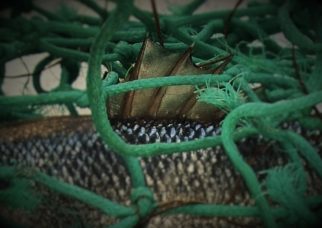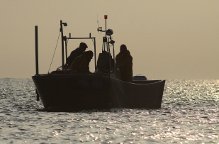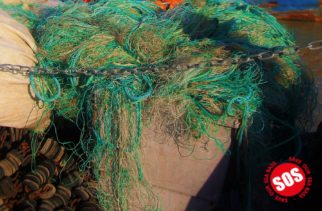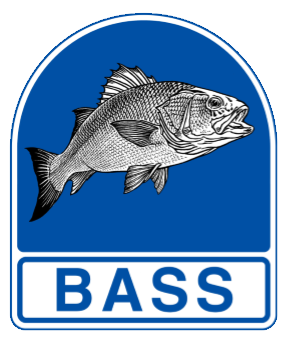We hear a lot about this from the commercial sector – how they have to throw back tonnes of perfectly good fish. While the whole sad and sorry incident on a recent BBC Spotlight programme highlighted this issue, it was a very biased account which reflected adversely on all those who were involved in its production.
Discards are fish which are thrown away when a quota – an allowance or cap – has been exceeded. The cap is there to protect the fish, to prevent a free for all and the resultant overfishing that would occur. It could be termed, “a necessary evil”. The cap is decided by scientists, who have no axe to grind and is based upon research. They are only interested in the stock and making sure that the fishing of that stock is sustainable, so it will be available for future generations.

No one wishes to see perfectly good fish discarded. The problem is that the only alternative to a quota or cap is to let fishermen land what they catch. That is exactly what has happened to bass over the years and is why they are in such an abject state now. Bass had no quota and thus no protection in the past. Because bass are a shoaling fish they are relatively easy to target and without the protection of a quota fishermen could catch and land what they wanted – as long as they were of minimum size. The stock became decimated and that is why emergency measures had to be introduced to protect them.

Quotas and discards are in place to protect not just fish but also commercial fishermen’s livelihoods – they are a necessary evil brought about as a result of years of commercial overfishing. If there is to be no discarding of bass and commercial and recreational fishermen are allowed to land every bass they catch this is what will happen.
A gill netter or trawlerman goes out and catches 500 kilos of bass. At the moment he has to discard some of these and yes, they will be dead. The alternative scenario is that he is allowed to land these bass and if that is the case then he will almost certainly, and understandably, be out there in the same area again tomorrow trying to catch even more bass. Not only that but other boats will hear of his landings and will join him on the bass bonanza.
As a result of the increased fishing effort the 500 kilos of today could easily become 5 tonnes tomorrow. While they are catching they will keep going and the shoal could be wiped out completely. This would be happening in not just one area of our seas but in other areas all around our coasts, so the cumulative effect would be catastrophic. There would be a significant amount being removed from an already depleted biomass and the stock would slip further and further below Blim, (the point at which the stocks ability to recover is compromised), and into oblivion. Does anyone REALLY believe that is the way we want to manage a fishery? This is exactly the lack of foresight that got bass, along with other species, into trouble in the first place – a complete absence of protection resulting in unregulated landings. It became a free for all with no restrictions – “overfishing”.
Surely it is better to allocate protective measures to bass now, so the stock can regenerate, and the fishery can have a long-term future? That will benefit all stakeholders and somewhat ironically, especially the commercial fishermen. Wouldn’t it make sense if next time a fisherman has an unavoidable by-catch of bass he notifies other skippers over the radio, so they can avoid the area and keep bass mortality to a minimum. It is in their best interests to do so. That has to be better than catching them and filming them being discarded.
When we are constantly taking from a resource at a faster rate than it can regenerate naturally we are in trouble. That isn’t difficult to understand but it is something that many commercial fishermen appear unable to grasp. Perhaps they simply don’t want to. The fishery management of bass needs to be about nurturing what little is left and allowing it time to regenerate rather than racing to wipe it out completely in the shortest time possible.
Blog by Dave SOSB team
Contact Us info@saveourseabass.org

Membership of BASS is open to everyone, who shares our aspirations for the enjoyment and conservation of this beautiful fish. We now provide several options for joining.
Remember everyone’s welcome to freely subscribe to our BASS newsletter so you can keep up to speed with the society. Subscribe to Our Newsletter
‘